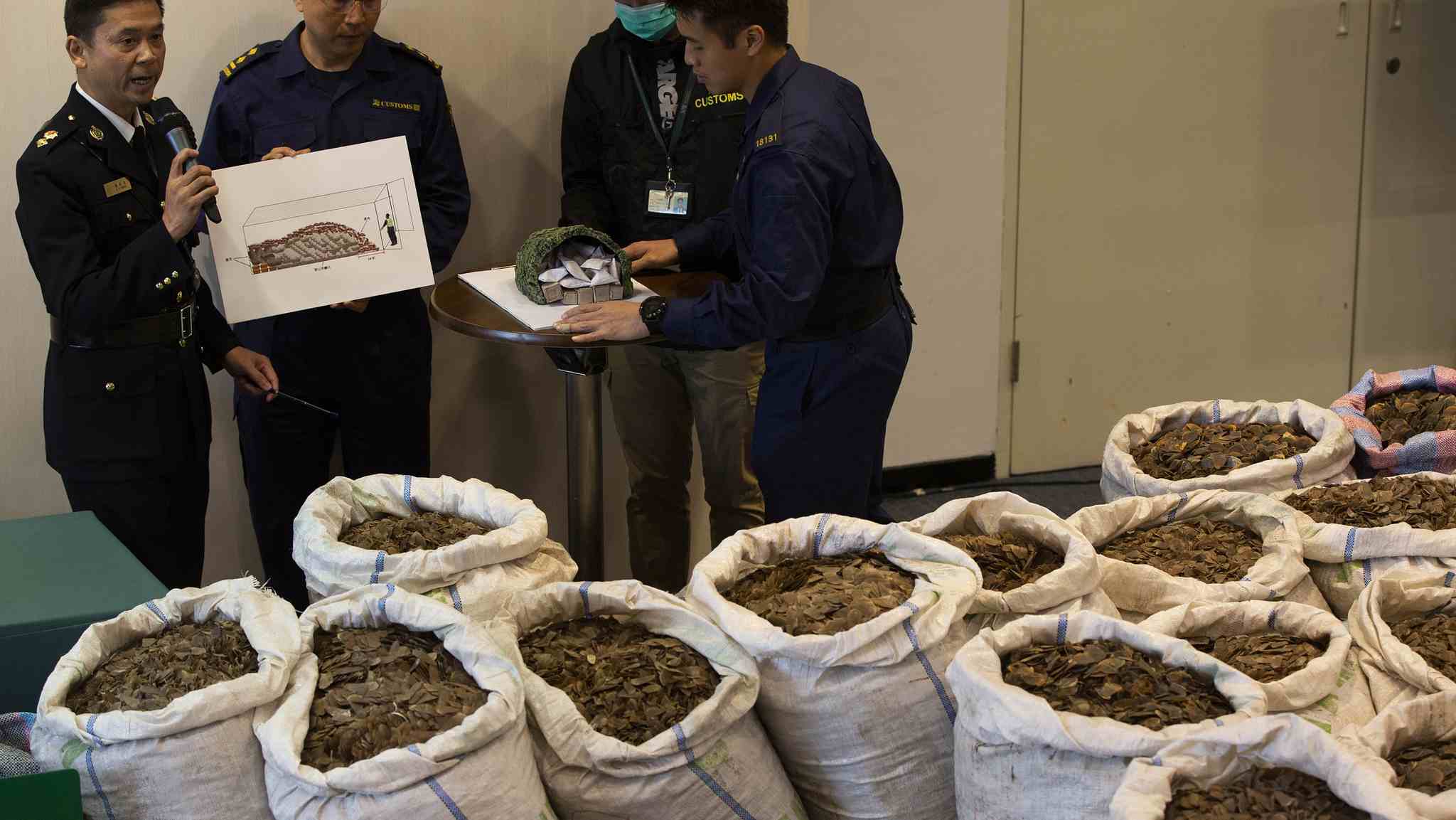
Environment
13:39, 04-Feb-2019
The new ivory: Endangered pangolins dominating illegal wildlife trade in SE Asia
Alok Gupta

China's shutdown of the domestic ivory market has crashed the price of elephant tusks by more than 60 percent, forcing smugglers to shift their trade towards another lucrative trade – endangered pangolin scales.
After the Chinese government's crackdown on the once thriving wildlife trade, smugglers are shifting to Vietnam and Laos for selling wildlife products, said experts citing recent ivory and pangolin scale seizure data.
The ivory price declined by nearly two-thirds – from 2,100 U.S. dollars per kg to less than 700 dollars per kg – after China's mainland and its regions Hong Kong and Taiwan closed their domestic markets last year. The massive global demand for ivory has led to the poaching of more than 20,000 African elephants every year.
“(Chinese) President Xi's ivory ban turned the tide in the ivory wars,” said Peter Knights, CEO of WildAid.
“As the price of ivory falls, smugglers appear to be turning increasingly to beleaguered pangolins,” a statement by WildAid, a conservation group maintained. “Pangolin scales can still be legally sold when smuggled into China,” it added.
The recent wildlife seizure data shows wildlife traders prefer to trade pangolins scales over ivory. Most of the consignments, originating from African countries, are routed to various Southeast Asian countries, with Vietnam and Laos emerging as a favorite destination.
Hong Kong, as a Chinese special administrative region and a major illegal wildlife product destination, intercepted 17.6 tons of pangolin scales in 2018, up from 7.9 tons in 2017. Ivory seizures dropped for around 20 times, from 7,600 kg in 2017 to barely 370 kg in 2018.
On Friday, customs authorities of Chinese mainland and Hong Kong announced a record seizure of 8.3 tons of pangolin from Nigeria, worth 5.4 million U.S. dollars. An estimated 13,000 pangolins were believed to be poached, given the large consignment size.
“This is the largest amount of pangolin scales ever seized in Hong Kong,” officials announced
In three other separate operations, Vietnam, Uganda, and Angola law enforcement agencies intercepted a massive haul of ivory and pangolin scales.
Around 750 pieces of ivory and thousands of pangolin scales were seized in Uganda on Thursday. The seized consignment, sent from neighboring South Sudan, is one of the country's largest seizures. Authorities arrested two Vietnamese nationals for smuggling the banned wildlife products.
At Vietnam's Haiphong port city, 1.4 tons of pangolin scales and 20 elephant tusks were seized last week. In Angola, five Vietnamese nationals were arrested for attempting to smuggle in 800 kg of ivory and 900 kg of pangolin scales.
The ant-eating pangolins are the most illegally traded mammal in the world. Concerned over the large scale poaching, the International Union for Conservation of Nature (IUCN) declared all eight pangolin species as threatened with extinction.
Massive use of the product for traditional medicines, mostly in Southeast Asian countries, is leading to their extinction, IUCN said.
“China could help save African and Asian pangolins. Pangolins cannot be bred commercially, and all populations are banned from trade, so there is no possible legitimate source for ongoing scales sales,” Knights added.
(Top Image: Hong Kong Customs officials showing a record seizure of endangered pangolin scales on Friday, February 1, 2019. /Pix courtesy of WildAid)

SITEMAP
Copyright © 2018 CGTN. Beijing ICP prepared NO.16065310-3
Copyright © 2018 CGTN. Beijing ICP prepared NO.16065310-3